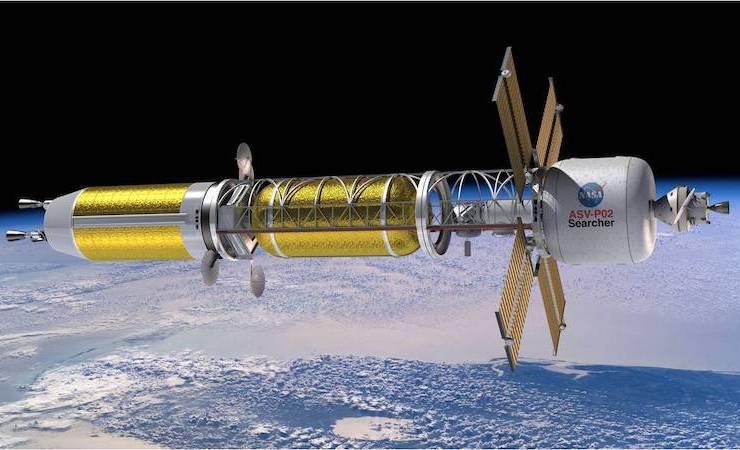The UK Space Agency and the National Nuclear Laboratory (NNL) are to collaborate on the world’s first space battery powered by Americium-241. This work, commissioned and funded by the UK Space Agency from NNL, will be delivered in a new £19 million laboratory in Cumbria equipped with next-generation equipment and technology. It will deliver a sovereign supply of fuel for space batteries in the context of a global shortage, enabling the UK and its partners to pursue new space science and exploration missions.
The plan is to make the world’s first space battery powered by Americium-241, a manmade radioactive metal or radioisotope produced from plutonium and with similar properties. Researchers at the Sellafield nuclear site in Cumbria found that Am-241, which is produced by the radioactive decay of used fuel from nuclear reactors, could be used as an alternative for the batteries known as radioisotope power systems (RPSs).
Previous RPSs have all been powered by Plutonium-238, which is only made in the US and Russia, so these plans have been accelerated following the discovery that Americium-241 could be used as an alternative.
Atomic space batteries, or radioisotope power systems (RPSs), generate heat when radioactivity decays. Heat can be directly used to keep a spacecraft from freezing and can also be turned into energy to run the equipment inside. The UK Space Agency explains that the batteries continue to function for decades without requiring repair.
“This innovative method of creating Americium to power space missions will allow us not only to sustain exploration of the Moon and Mars for longer periods but to venture further into space than ever before,” said UK Space Agency chief Dr. Paul Bate.
Supporting the National Nuclear Laboratory’s expansion will make the UK the only country in the world capable of producing this viable alternative to Plutonium, reducing the global space community’s reliance on limited supplies, which are increasingly difficult and costly to obtain.

